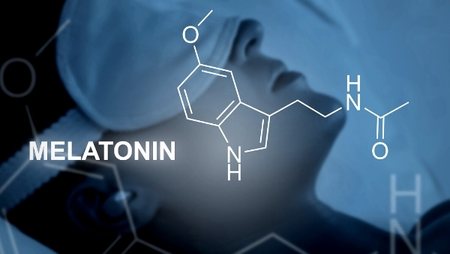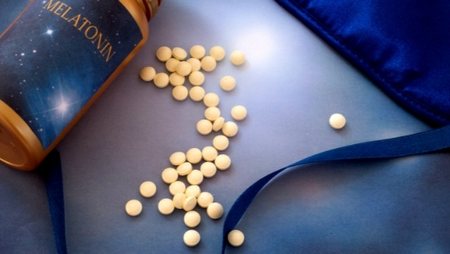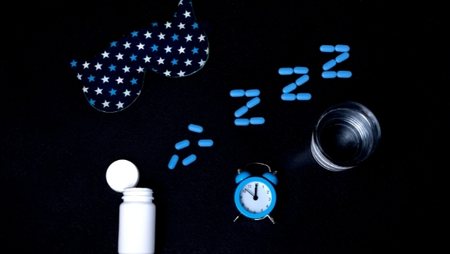
- Approximately more than 2 million Americans take melatonin supplements, a hormone produced naturally by the pineal gland, to help them fall asleep.
- Melatonin is a hormone, and hormones are chemical messengers through the body. They travel in your bloodstream to tissues or organs; melatonin’s effect is far stronger than vitamins and minerals for mood.
- Most research showed that melatonin is highly safe, with few reports of side events, and may have metabolic, anti-inflammatory, immunomodulatory, and antioxidant properties.
- Melatonin may have primarily functioned as an antioxidant, even far better than others. How? Melatonin protects mitochondria via free radicals, blocking and activating uncoupling proteins (UCPs). Melatonin supports mitochondrial membrane potential and functions.
We will explain the benefits of melatonin for well-being and answer, “Can melatonin reduce anxiety, depression, or other problem?”
Why is Melatonin Important For Us?

Times have shown how important sleep is to our health and well-being. Without proper sleep, people experience a lack of productivity, energy loss, moodiness, depression, weight gain, and other unpleasant symptoms.
Sleep is crucial not for optimizing energy and productivity, as well as mitochondrial health and longevity. Our cells mostly rejuvenate themselves with sleep, and the brain organizes, recharges, and flushes away toxic waste byproducts that have built over the day.
Yet, melatonin is the “main part” of the deep sleep state and cell recovery. Through deep sleep, your body releases “growth hormones” responsible for weight loss and anti-aging benefits.
Not just that, melatonin also directly affects metabolic health, which we will cover in the future. Do you know obesity is linked to melatonin deficiency?
The research shows that when 30 obese individuals on a calorie-restricted diet received 10 mg of melatonin daily for 30 days, they lost significantly more weight than the non-melatonin group.
As you can see, proper melatonin might prevent obesity, protect your cells’ damage from free radicals, and stimulate the secretion of the “anti-aging” hormones called growth hormones. (because of deep sleep)
Related: How Do You Repair Mitochondria Naturally?
Melatonin As A Supplement

Melatonin supplement isn’t dangerous as you might think if you use it in regular dosage.
Older people tend to have a low level of melatonin because melatonin levels fall gradually throughout their lifespan, which may be linked to decreasing sleep effectiveness and circadian rhythm degradation.
Before using supplement form, especially high dosage, always Ask your doctor to test you for melatonin deficiency. Blood, urine, or saliva tests may measure melatonin levels.
Melatonin is safe, with rare reports of side reactions, particularly at low dosages between 0.5 and 5 mg. “Melatonin is highly safe if used in regular dosages,” says Michael Grandner of the University of Arizona.
In my opinion, 0.5 to 1.0 mg of melatonin is a great way to start and see your response. Because “not sleeping” is far more dangerous than 0.5mg melatonin side effects.
“We have shown that melatonin’s metabolite AMK can facilitate memory formation in all ages of mice,”
-Atsuhiko Hattori at Tokyo Medical and Dental University (TMDU) in Japan
Sleep Deprivation Far More Dangerous Than Melatonin Side Effects

I know it’s the best way to optimize your sleep in a natural way and avoid blue light at night. Artificial blue light not just affects our melatonin as well as our energy level and mitochondria.
However, it’s not always the case for some people, especially nighttime shift workers. For that, I would suggest using some low dosage melatonin to increase melatonin levels in the bloodstream.
Sleep deprivation or insomnia is far more dangerous than the side effects of the 0.5 mg to 1 mg melatonin. If you can’t sleep, you will feel in a depressed state, dizziness, low productivity, appetite, and immunity problems.
Regardless, if you still have resistance to using melatonin supplements, then try melatonin precursors such as magnesium, b6, vitamin c, zinc, and tryptophan for that regard; optimizing this will allow you a better way to sleep.
If you don’t want to use any supplements, you can try Regular Inner smile Meditation, Wim Hof Breathing, and daily cold showers to optimize stress levels and cortisol levels.
Also, melatonin more likely secretes “cold” environments than hot temperatures. So, a cold shower might helps as well, as room temperature is important.
“The relationship between sleep and mood makes it possible to reduce stress by taking melatonin supplements.”
Optimizing Gut Bacteria For Better Sleep
Our gut bacteria directly affect our well-being as well as our hormone balance. The Gut also impacts our mitochondrial level and inflammation modulation, which directly affects neurotransmitter levels such as serotonin, GABA, and dopamine.
For better sleep, GABA, Serotonin, and Melatonin play an important role. Without enough GABA and serotonin, it’s more likely you can feel insomnia and sleep deprivation.
Optimizing gut bacteria can be helpful because, According to research, Lactobacclius Rhomnous bacteria can enhance GABA, which lower anxiety and helps you get better sleep.
Also, most of the serotonin can be secret in the Gut, and they travel through the vagus nerve to the brain, which increases brain serotonin level and then convert to melatonin hormone.
Related: Why Gut health is the Cornerstone For Brain Health?
Another Simple technique For Optimizing Gut Health
Chewing is one of the most important strategies for optimizing your gut health and digestion. , Chewing helps to save “digestive enzymes.” for future use, and chewing your meal completely may change the release of gastrointestinal hormones that lower hunger.
- Chewing more slowly may reduce the hunger hormone Ghrelin.
- Chewing more properly may allow more GLP-1 to be released, which enhances fullness.
Evidence today suggests the possibility that chewing reduces food intake and self-reported hunger, potentially by altering gut hormones’ responses to fullness.
Melatonin is a Great Anti-inflammatory
We discover the relationship between inflammation and disease. Not just that, chronic inflammation also affects the brain neurotransmitter such as serotonin, dopamine, as well as melatonin.
There are previous meta-analyses that show depression increases proinflammatory cytokines like TNF and IL-6.
A recent meta-analysis was described in people with depression, including higher levels of TNF, IL-6, IL-13, IL-18, IL-12, and IL-1RA.
A study found that increased levels of TNFα in the hippocampus(brain area) and striatum have been associated with anxious and depressed behavior because inflammation regulate neurotransmitter level, actually lowering them.
On the other hand, optimizing mitochondria health and lowering inflammation such as TNF, IL-6, AND CRP can be helpful for well-being as well as mood.
Melatonin offers anti-inflammatory characteristics as well. Melatonin inhibits inflammation-related tissue damage in several ways.
Melatonin also lowers organ damage and brain damage by scavenging harmful free radicals.
I believe optimizing melatonin is far more important than glutathione for anti-aging benefits.
Free Way To Lower Inflammation
You might ask, “how can I reduce inflammation to an easy way?”. It’s an easy, effective way to reduce inflammation and improve mitochondrial health.
I explained a detailed free alternative for optimizing mitochondria, and you should definitely check it out: Free Alternative For Optimizing Mitochondria, And longevity.
Optimizing melatonin is a great way to reduce inflammation, however another thing you can consider:
- Wim Hof Breathing Methods: There is research showed that the breathing method showed that compared to the control group, the Wim Hof Method group showed reduced inflammatory biomarkers such as IL-6.
- Intermittent Fasting: The modest oxidative stress caused by fasting is what triggers the production of protective sirtuin proteins. Yet, according to research, fasting may increase these messengers, promoting mitochondrial biogenesis and improving mitochondrial function, and lowering inflammation. Intermittent fasting is actually a free way to do that.
- Sun Exposure: Please, it is free, and the best source of vitamin D, and it improves mood, inflammation, Circadian rhythm(melatonin), and nitric oxide production. If it’s not, vitamin D supplement isn’t expensive compared to others.
- Inner Smile Meditation: In the popular Taoist technique known as the inner smile meditation, we smile internally to all of the main organs in our body to awaken the spirit of loving-kindness that is within us. However, it helps to lower activation of the sympathetic system and excess stress levels via lowering cortisol.
Plus, I would say that being metabolically flexible is another thing you can consider when optimizing Melatonin. Why?
Interestingly, when you can’t use fat for fuel(ketones), your body generates a molecule called acetyl-CoA while breaking down fats— and this is one of the compounds in your body for synthesizing the Melatonin hormone.
As we know, Melatonin has anti-cancer properties that protect our cells from environmental damage. Without metabolic flexibility, our body will be less likely to synthesize Melatonin from acetyl-CoA, cause to impair Mitochondrial efficient and eventually to impair health cell function.
Melatonin Deficiency Might Lead to Depression
As we discuss, chronic inflammation and elevation of IL-6, TNFa, and other biomarkers can cause depression or at least lower neurotransmitters such as serotonin, GABA, Melatonin, and others.
Melatonin deficiency can cause inflammation and lowering immunity. Melatonin deficiency leads to insomnia, whether stress-induced or severe, and trouble sleeping and staying asleep.
Also, our brain waves can determine and helps our mood. If you have melatonin deficiency, you might experience certain brain waves such as theta or delta.
Another Reason: Melatonin’s Anti-Diabetic Effects
People who have sleep deprivation tend to have more hungry and eat more. The hunger hormone ghrelin is influenced by sleep patterns, and melatonin showed an anti-diabetic effect.
The study showed that adults who obtain seven to nine hours of sleep per night tend to have greater ghrelin levels, less sensation of fullness, and more appetite.
Also, melatonin may help diabetics with hyperglycemia. Melatonin lowers oxidative stress and elevated adiponectin, a hormone that lowers glucose and increases fat metabolism.
Some suggest that melatonin improved dyslipidemia, or abnormal blood fats, at large dosages.
Sugar imbalance and overactive insulin affect the level of hormones such as serotonin, GABA, and dopamine.
So, optimizing insulin is a good way to optimize well-being because if you do not have insulin sensitivity, you might have a low level of testosterone hormone, which affects the men’s well-being.
Niacin + Melatonin Support Metabolic Health
There are cheap ways to optimize your metabolic health, such as fasting, sleep, and vitamin D. However, Niacin and Melatonin both have special advantages that help with immunological and metabolic health.
- Niacin and melatonin affect adiponectin, a peptide released by fat cells that play a role in obesity-related disorders and affect the liver, skeletal muscle, and vasculature. In a human study, melatonin administration seems to control adiponectin activity, resulting in considerable weight reduction.
- More than 400 enzymatic processes in the body are catalyzed by nicotinamide adenine dinucleotide (NAD+), which is produced from niacin. NAD+ is required for gene function and the regulation of genetic expression.
- Niacin has an anti-inflammatory impact and can lower the expression of proinflammatory cytokines such as IL-6 and CRP. Combining with melatonin can be double effects.
- Niacin supplement is a relatively cheap and effective way to boost mitochondrial health as well as inflammation.
Limit Your Caffeine
Coffee isn’t the devil, AND coffee increases metabolism and lowers the risk of Type 2 diabetes, stroke, cardiovascular disease, and early mortality.
But, it’s not about coffee; the most benefits come from coffee polyphenols, not caffeine itself.
Caffeine affects melatonin production because it increases the cortisol level and counteracts melatonin. A daily dosage of 1-2 cups of coffee or tea(3-4 cups) is great and will prevent your caffeine addiction and sleep disturbance.
The reason for limiting your Caffeine intake is because caffeine drains GABA levels. For that, coffee drinkers are more likely to experience anxiety, irritability, panic attacks, and other symptoms of nervous tension.
Don’t forget that when you consume caffeine, Sodium, Magnesium, and Chloride are the main minerals that leave the body. So, you should replace them.
But, we have a solution for you. Use decaffeinated coffee or black tea the get same benefits. (polyphenols). Decaf Coffee has the same antioxidants as coffee for neutralizing free radicals.
Related: Black Tea: Why Do I like Black Tea More Than Green Tea?
Dark roast coffee beans offer strong antioxidants and low acrylamide. To reduce glyphosate and other chemical residues, buy organic or biodynamic coffee beans.
Use Melatonin Intermittent, Not Chronic
Melatonin is a great way to optimize your sleep, and melatonin influences circadian rhythm and regulates mood as well as the immune system; it also reduces inflammation and is a great antioxidant.
The best way to ensure optimal melatonin is the regular sunlight and avoid artificial blue light at night.
Light pollution in cities has become ten times more intense over the past 30 years, and our testosterone levels are half what they used to be. There is a relationship. The right thing to do is to darken cities at night so humans and other animals can all get proper sleep. It will save our insects and, ultimately, our soil. If your light is not red at night, turn it off. Birds and other nocturnal animals will thank you.
– Dave Asprey
Furthermore, if you can afford to avoid EMF Radiation which alters the neuroendocrine function and is linked to stress, depression, and learning disorders.
If you decide to use a melatonin supplement, do not overuse it. Start with a small dosage, and combine it with stress reduction techniques such as the wim hof breathing method or meditation.
0.5 mg or 1 mg is good to start. Also, do not use it for more than six months because we have no strong evidence for long-term use.
In my opinion, taking a “side effect,” low dosage melatonin supplement makes it far more tolerable THAN sleep deprivation. However, always consult your doctor.